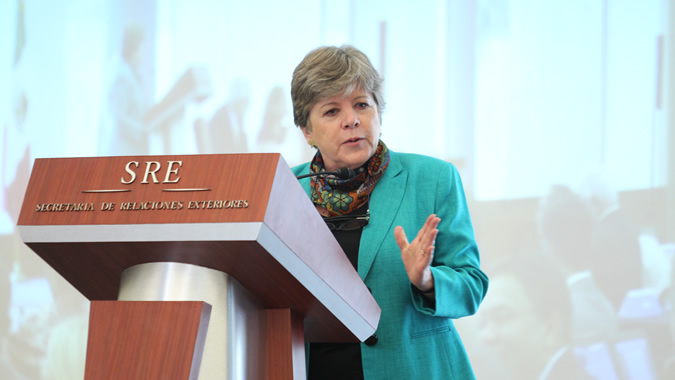Press Release
The Executive Secretary of the Economic Commission for Latin America and the Caribbean (ECLAC), Alicia Bárcena, reaffirmed today the commitment of the five United Nations regional commissions to accompany all countries—and Latin American and Caribbean states in particular, in ECLAC’s case—when establishing regional positions and facilitating global consensus on the design and perfection of the indicators for the 2030 Agenda for Sustainable Development.
“The regional space—both the regional commissions and their intergovernmental bodies working in the area of official statistics—has played a vitally important role in achieving this common, global objective and it will surely continue to do so during the implementation of the monitoring framework,” Bárcena underscored at the opening session of the third meeting of the Inter-agency and Expert Group on the Sustainable Development Goal Indicators (IAEG-SDGs).
Bárcena welcomed the consensus that enabled the approval of a baseline proposal of 231 indicators during the 47th session of the United Nations Statistical Commission, held on March 8-11 in New York, and congratulated experts from the Inter-agency and Expert Group, under the coordination of the Philippines and Mexico as Co-Chairs. In this respect, she recognized the leadership of the National Institute of Statistics and Geography (INEGI), of its President Julio Santaella, and of its directors Félix Vélez and Enrique Ordaz.
The goal of this gathering, which is taking place in Mexico City from March 30 to April 1, is to analyze the classification of the 231 indicators in three blocs: those where methodologies and comparable information exist in the international sphere; those where there are international standards but no data; and those that require new data and new methods to measure in a comprehensive way the 17 SDGs and their 169 targets.
The Executive Secretary said that ECLAC has accompanied this process along with the Statistical Commission and the Inter-agency and Expert Group on Sustainable Development Goal Indicators, as well as with the High-level Group for Partnership, Coordination and Capacity-Building for Post-2015 Monitoring. “ECLAC puts its capacities at countries’ disposal to facilitate the implementation and follow-up of the 2030 Agenda,” Bárcena stressed.
ECLAC’s most senior representative said that achieving the 17 goals of the 2030 Agenda, adopted by the United Nations General Assembly in September 2015 and centered on equality, will require a change in the pattern of development and in economic, industrial, social and environmental policies, in line with progressive structural change.
To that end, the Executive Secretary identified four key pillars, among them the integration of SDGs into national development planning and fiscal frameworks, and the design and follow-up of the means of implementation in a difficult economic context, including the fight against tax evasion (which represents 6.3% of the region’s annual GDP) and the leverage of science, technology and innovation.
Furthermore, she mentioned the importance of enhancing the regional architecture for the follow-up of the 2030 Agenda, through the Regional Forums on Sustainable Development, and strengthening statistical capacities in the context of the data revolution in order to facilitate follow-up of the indicators associated with the SDGs using traditional and non-traditional data that is ever more disaggregated and georeferenced.
Alicia Bárcena emphasized the importance of establishing accords between the Statistical Conference of the Americas and the Americas Committee of Experts on Global Geospatial Information Management, which is also presided by Mexico’s INEGI, and stressed the relevance of strengthening the capacities of national statistical systems, which are central institutions for the implementation and follow-up of the 2030 Agenda.
Other participants in the meeting’s opening session were: Claudia Ruiz Massieu, Mexico’s Secretary of Foreign Affairs; Julio A. Santaella, President of the National Institute of Statistics and Geography (INEGI) of Mexico; and Lenni Montiel, Assistant Secretary-General for Economic Development in the Department of Economic and Social Affairs of the United Nations.
The event is being attended by United Nations experts and representatives from the national statistical systems and institutes of the 28 member states that make up the Inter-agency and Expert Group on Sustainable Development Goal Indicators, along with statisticians from other UN member counties who are there as observers and experts from civil society and academia. The region is represented by Brazil, Colombia, Cuba, Jamaica and Mexico, which co-chairs the group along with the Philippines.



